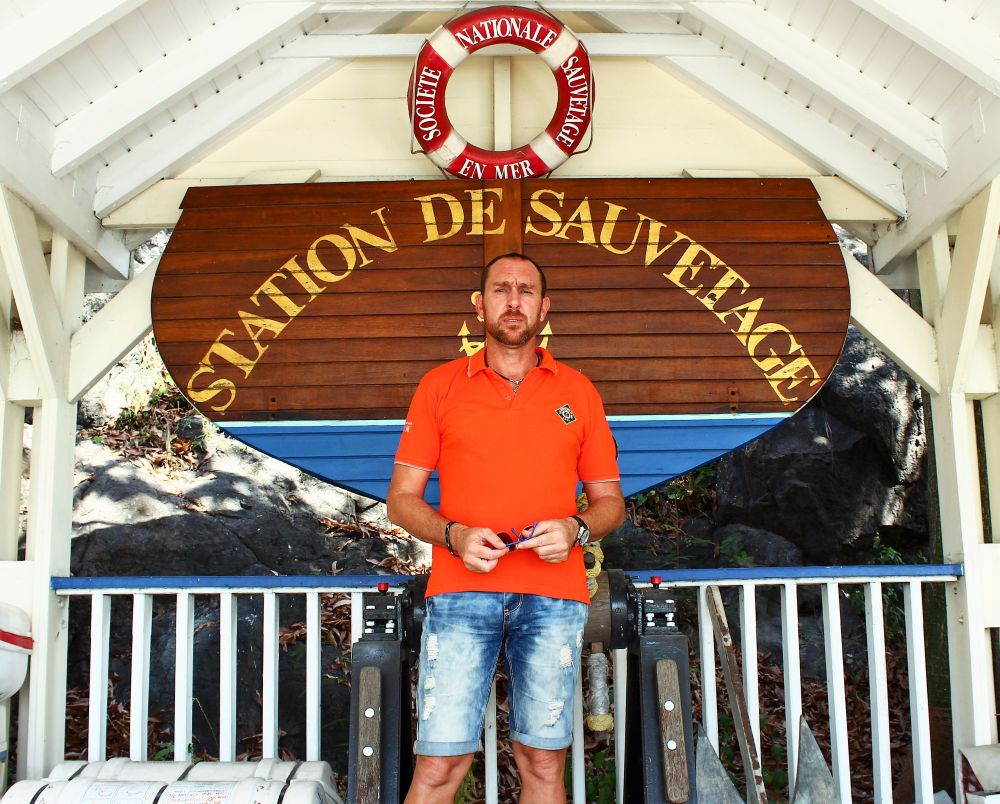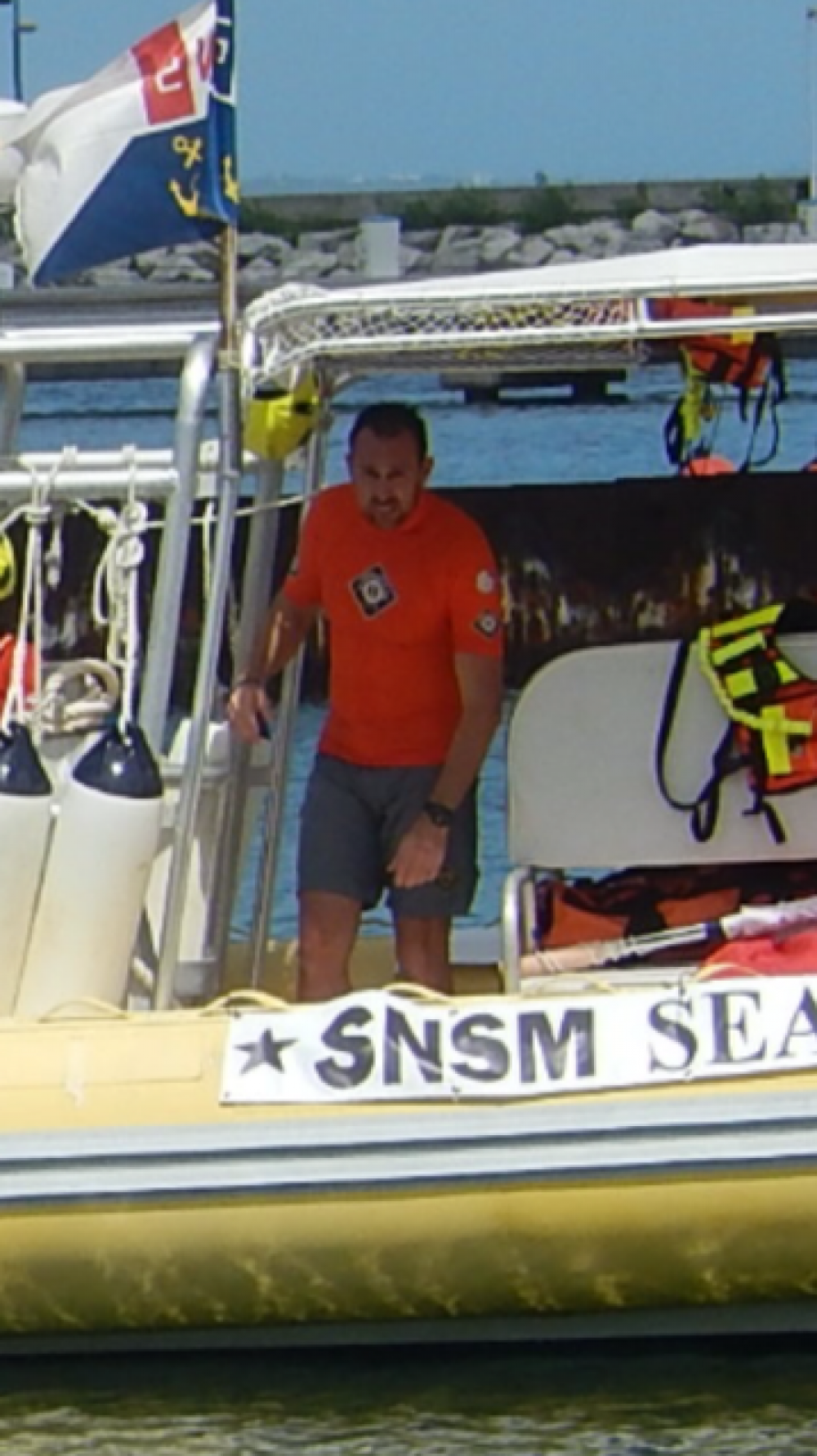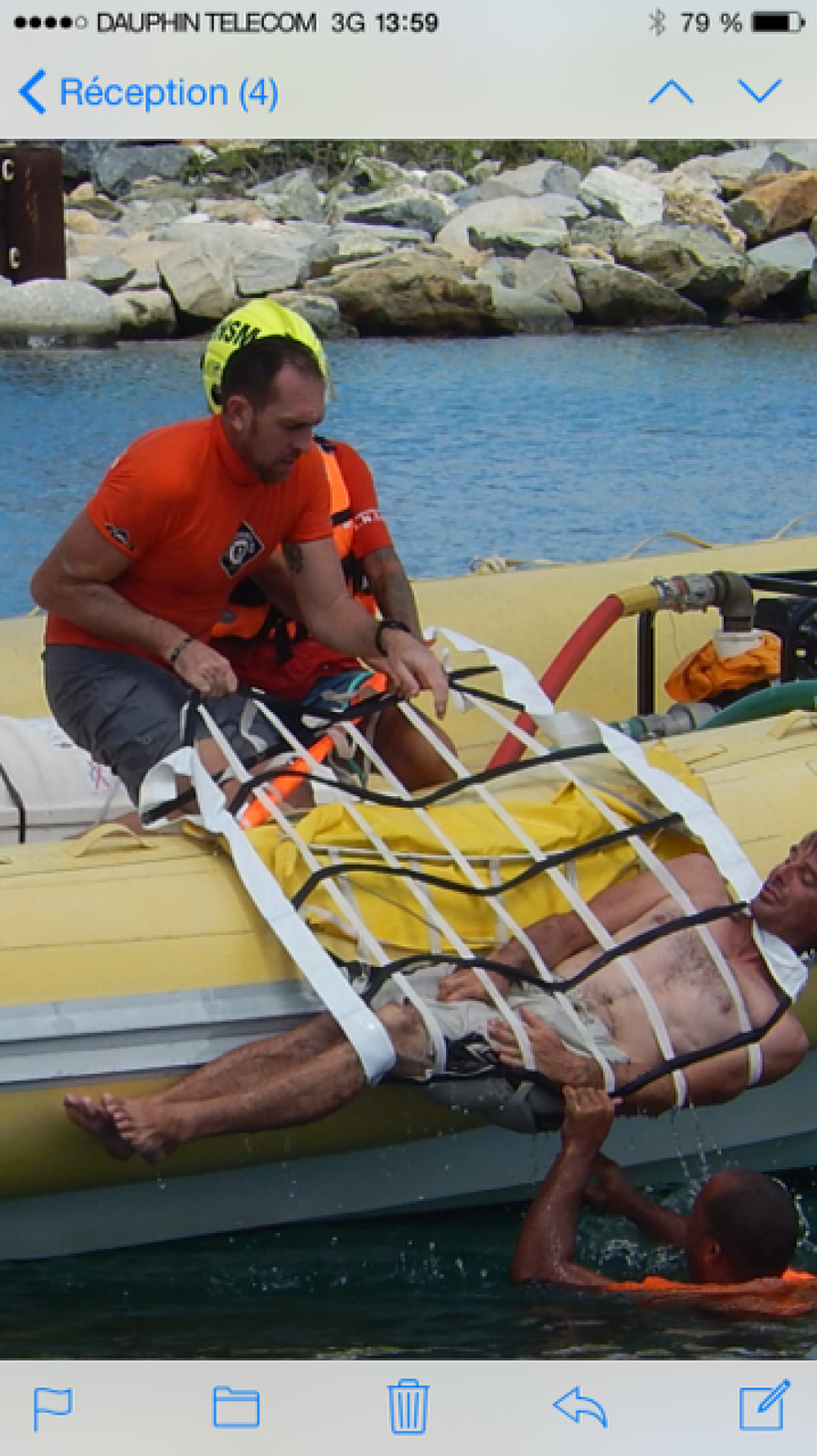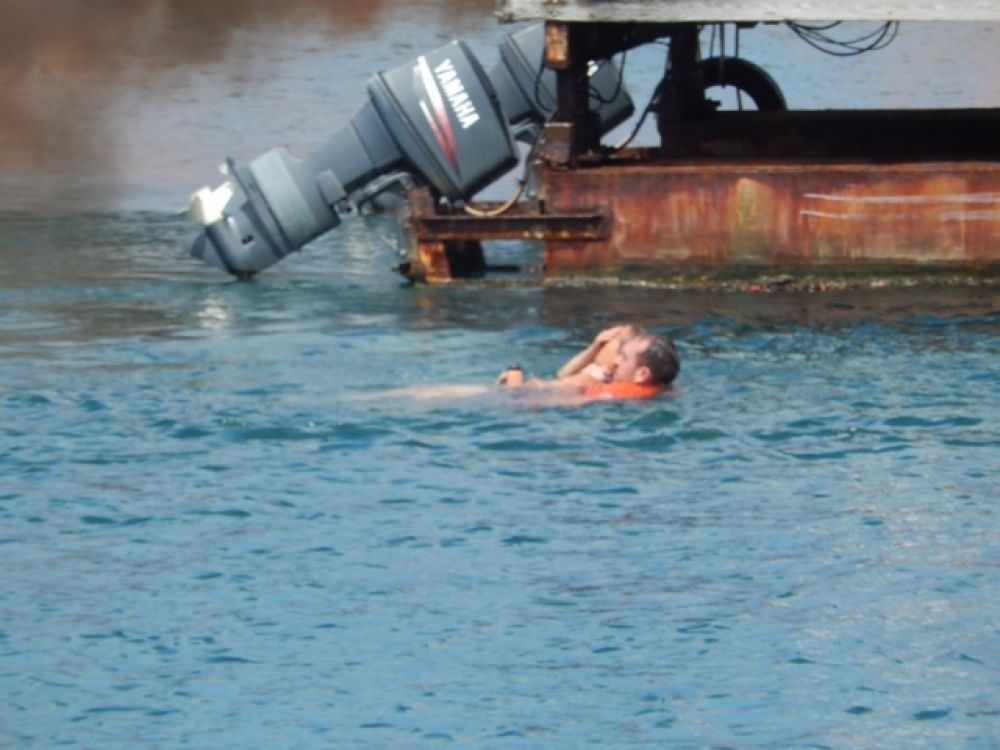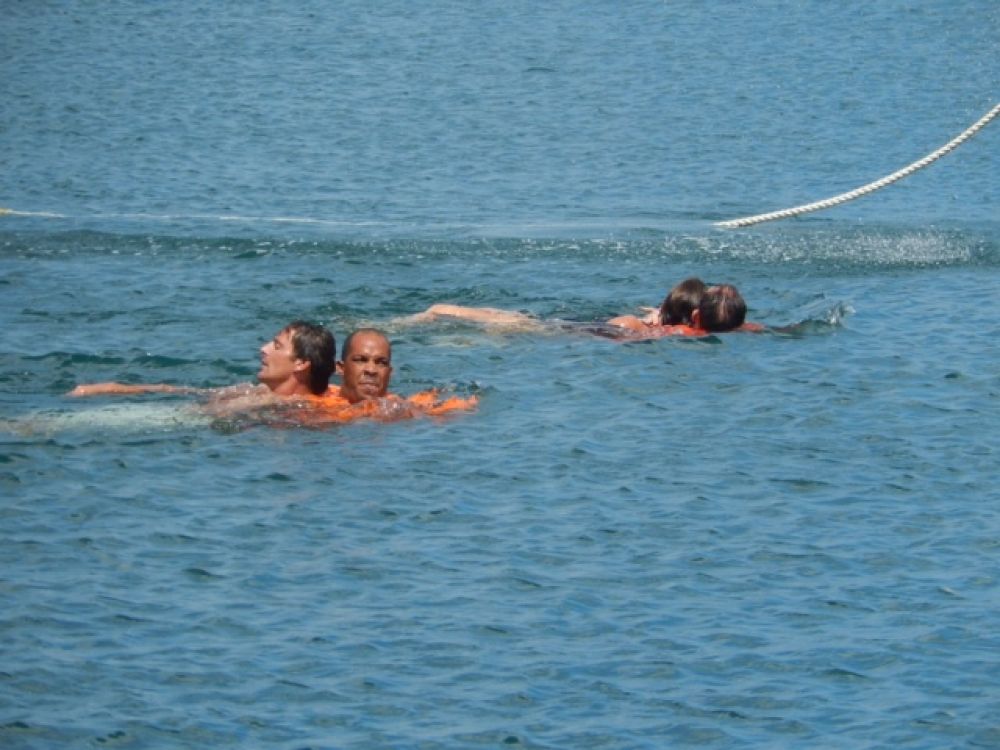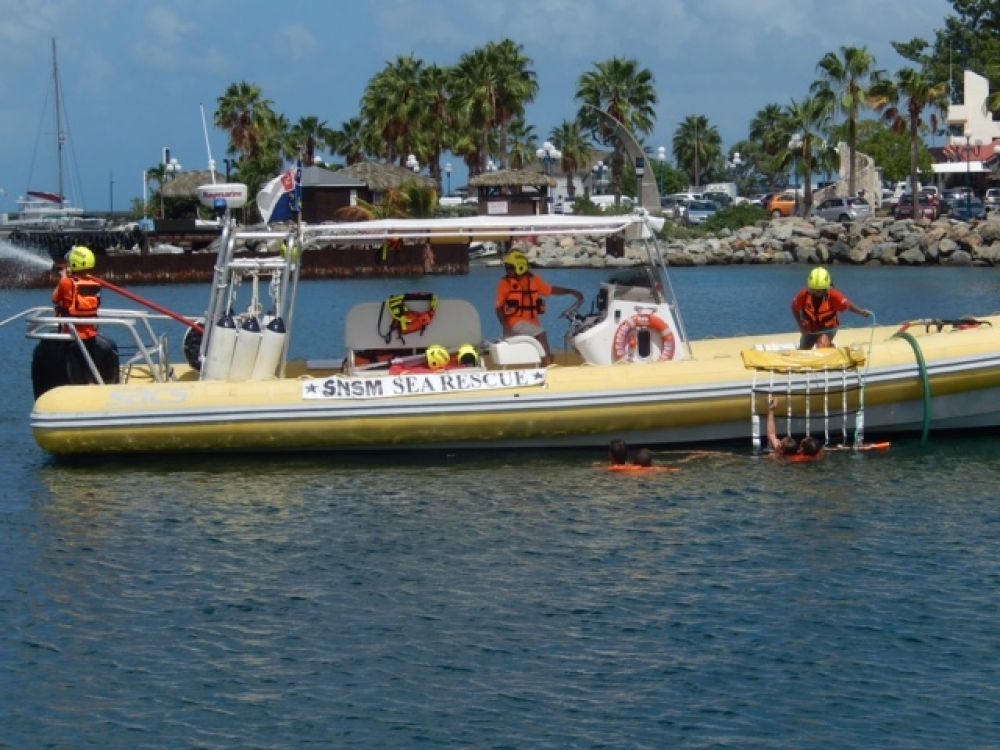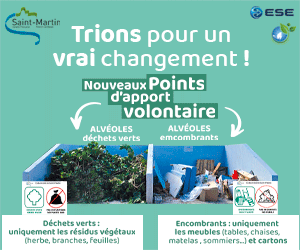The SNSM has a new "pacha"
Gilles Dubroca, 43 years of age, has just been named head of the Saint-Martin SNSM. ‘In Metropolitan France they say ‘pacha’ says the businessman, who moved to the island in 2007 because he was ‘too cold in Marseille.’ He has been working at the heart of the SNSM for eight years - ‘simply to save lives. We are the only ones operating in the sea here.’
He has been familiar with the sea for a very long time. An amateur diver, he owns a mechanical ship maintenance company in Southern France. Saving lives is in his genes, being the son of a CRS master diver, father of a medical student, and being an ex-stretcher-bearer himself.
His famously cool attitude and propensity for fun seek to mask a slight cynicism - a necessary detachment for those who have seen too much. While eating, he explained how his colleagues fished out the body of an elderly man who had been in the water for several days, and which had lost its arms and legs.
‘If there is an incident, everything falls to me.’
In addition to his SNB2 diploma (diver corps), he was recently an SNB1 (rescue swimmer) trainer within the SNSM. Rescue swimmers are the opposite of a simple boat-rider - ‘they are all people on board who are authorized to jump in to save someone,’ he explained.
What about his promotion? Although you might think this would increase his enthusiasm, he stated - ‘this doesn’t change a great deal, I was already steering the ship (editor’s note: a function reserved for the head and deputy).’ On the other hand, he is not terribly delighted with the prospect of filling in reports. Dubroca is especially conscious of the huge responsibility on his shoulders. The lives of rescuers and victims are now within his remit. ‘If there is an incident, everything falls to me.’
The 45 members of Saint-Martin SNSM (including around 20 active members) are volunteers. They have no timetable, but make themselves available in response to emergency calls and as their professional obligations permit. As soon as an incident arises, the Antilles-Guyane CROSS, which organizes all sea excursions in the area, contacts the station. ‘We are a bit like volunteer firefighters, except we don’t get paid,’ said the new boss.
Juggling family life, professional life and rescue work is difficult under these conditions. So, what’s the secret? As well as the understanding of his team, ‘it’s necessary to have a job with lots of free time, or to be your own boss, like me. There are many who wouldn’t believe number of sea excursions we make.’
All types of interventions
Illnesses caused by alcohol, heat or age (many elderly people live on their boat), lack of attention by novices at sea, fires, water intakes, lost navigators, etc. The SNSM intervenes in cases with many different backgrounds.
Dubroca’s greatest rescue took place at Tintamarre. ‘The victim must have weighed 220 pounds; it took four of us to carry him. We placed a floating stretcher and as the launch could not beach itself, we had to pull it, by swimming, for over 160 feet,’ he recalled. What was the worst rescue? Searching for a night diver in Galion - ‘we were nearly sick on the boat, the hull was so strong. And we didn’t find him. Someone else discovered his body the next day. We must have passed close by without seeing him. That is horrible.’ He had a narrow escape on another occasion. A fisherman, who had fallen into the sea from his moving boat, remained clinging to the white buoy of his fish trap for 24 hours. ‘With calculating tools we estimated where he could be. We passed 300 feet from him without seeing him. Thankfully, his brother had come with us to show us the spot where he usually fished. Without that, we would never have found him.’
To keep your head despite all these emotions, the rescuer is emphatic that ‘love of the sea is the most important thing. Without that, nothing remains.’



